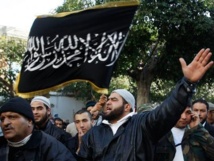
News websites suggested the eight men were Saudi preachers who intended to travel to several mosques across Tunisia to deliver sermons.
Since the popular uprising that toppled the regime of Zine El Abidine Ben Ali on January 14, 2011, a number of foreign preachers have visited the country to proselytise.
The rise to power of the Islamist Ennahda party in October 2011 allowed the creation of several Islamist associations, which occasionally invite Saudi and Egyptian preachers to give lectures and deliver sermons.
But President Moncef Marzouki has warned against foreign preachers from the Arab world spreading extremist ideologies.
"We are not opposed to Tunisian preachers, but to those who come from elsewhere. We have enough preachers to win the battle against extremism," he said on May 11.
The political opposition in Tunisia has accused these preachers of trying to impose radical, foreign ideologies on Tunisian culture and traditions.
----------------------------------------------------------------------------------------------
Since the popular uprising that toppled the regime of Zine El Abidine Ben Ali on January 14, 2011, a number of foreign preachers have visited the country to proselytise.
The rise to power of the Islamist Ennahda party in October 2011 allowed the creation of several Islamist associations, which occasionally invite Saudi and Egyptian preachers to give lectures and deliver sermons.
But President Moncef Marzouki has warned against foreign preachers from the Arab world spreading extremist ideologies.
"We are not opposed to Tunisian preachers, but to those who come from elsewhere. We have enough preachers to win the battle against extremism," he said on May 11.
The political opposition in Tunisia has accused these preachers of trying to impose radical, foreign ideologies on Tunisian culture and traditions.
----------------------------------------------------------------------------------------------









 Home
Home Politics
Politics









